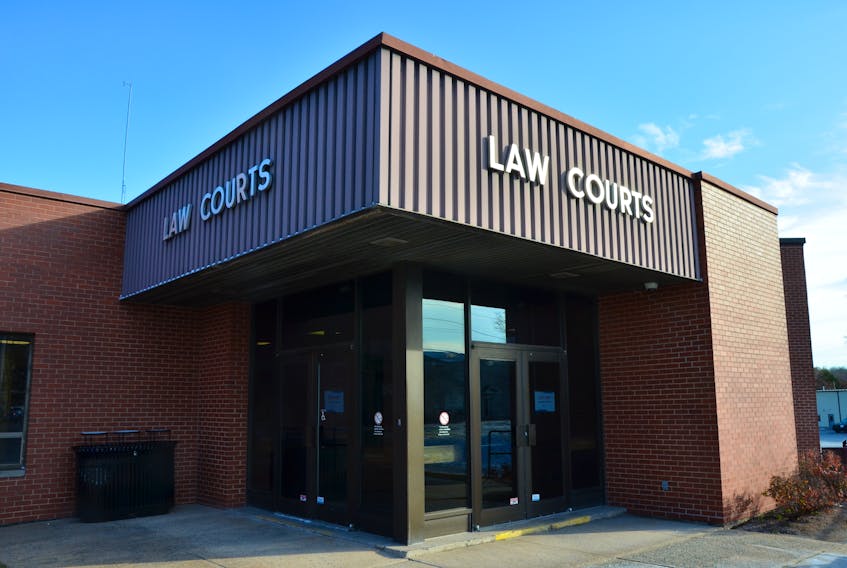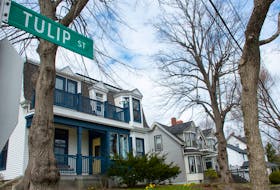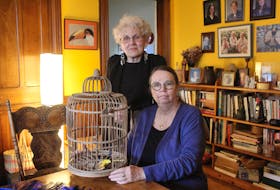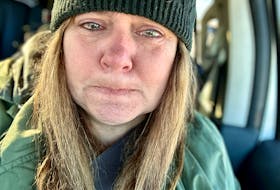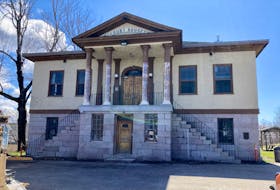KENTVILLE, N.S. — The Supreme Court of Nova Scotia has ruled in favour of National Gypsum in a dispute over land in Sweets Corner.
National Gypsum applied to the court claiming damages for trespass and seeking a permanent injunction with respect to the Sweets Corner property. The respondents are three brothers, Vaughn, Geoff and Blaine Veinot, who each contested the claims by National.
The subject property, which is mostly forested, is approximately 63 acres in size and is located off Wentworth Road in Sweets Corner, outside Windsor. National Gypsum claims it has owned the land since 1937. The respondents didn’t contest that the company holds paper title to the property.
The respondents claimed “adverse possession” of less than 20 per cent of the property. In Nova Scotia, a person can make a claim in adverse possession – also known colloquially as “squatters rights” - and gain ownership of a private parcel of land if 20 years of continuous use and occupation can be demonstrated.
Each of the respondents said that their grandfather, father and other relatives made use of the property since the 1950s and that they thought the property was abandoned. Geoff and Vaughn Veinot each said his claim in adverse possession began to run in 1986. Blaine said the same, except for certain pasture land which he said he began to use in the 1970s.
Vaughn Veinot’s property shares a southern boundary with the land in question. He purchased the property in 1996, built a home there and has lived there since.
Geoff Veinot lives on a lot that shares a northern boundary with the subject property. He doesn’t own the lot. Blaine Veinot says this land was deeded to him by his father in 1984. The lot has not been migrated to the new land registration system.
Blaine Veinot lives on a lot to the immediate north of where Geoff Veinot lives. Blaine bought the land from his grandfather in 1975 and has lived there since 1977. The parties disagree as to whether Blaine’s land shares a boundary with the subject property.
National migrated the subject property into the new land registration system in 2005. A “Form 5” was completed by Patrick Mills on behalf of National at that time.
He solemnly declared on behalf of the company as to the corporation’s knowledge that the land wasn’t being occupied without permission. That wasn’t the case, as the Veinot brothers were occupying part of the property.
Jeff Newton visited the property on behalf of National in September 2017. He said it appeared that a portion of the property had structures on it, a small livestock barn and a shed, as well as a driveway and some landscaping, near the northern boundary. A surveyor prepared a location certificate showing the encroachments.
Justice Anne E. Smith concluded that National Gypsum’s 2005 migration of the subject property was appropriate. The respondents claimed that the failure of National to provide them with a Form 5 at the time of the migration of the property or in 2017 means that the migration was improper.
They also contended that the very recent service on them of Forms 5 and 9 resets the limitation clock for their claims in adverse possession. The purpose of a Form 9 is to give notice to an occupier or the most recent owner.
Smith upheld the 10-year limitation on adverse possession claims after the time a property is migrated. She found that only Vaughn Veinot is an adjacent property owner. His claim of adverse possession failed because he acknowledged that National owned the property.
Vaughn had written a letter to National in August 2016 stating that “National Gypsum owns a piece of land next to my house and I would be interested in purchasing it for a reasonable price.”
He went on to state that the Nova Scotia Land Registry “gave me your company as the owner and your address.”
He said there is a pond “partly on my property and on your land” and maple trees he had tapped. “I would like to own this property,” Vaughn stated. “If it is not for sale, I hope you don’t mind if I continue to skate on the pond and tap the maple trees.”
Over the next 18 months, Vaughn continued to make inquiries, offering to purchase the property and also offering to act as a custodian on behalf of National but his proposals were denied.
Smith found that, provisionally, none of the Veinots have shown adverse possession for 20 years because their uses were not exclusive, given National’s entry onto the property in 2004, 2005 and 2017. Uses by Blaine Veinot prior to 1986, such as pasturing cows, were interrupted by the use of the property by Reid and Lyman Shanks.
Smith awarded National a declaration that it has legal title to the property; $1 in damages for the respondents’ trespass on the property; a mandatory injunction requiring the respondents to remove all structures from the property and to restore the property within six months; an injunction enjoining the respondents from any further trespass and costs of the court application.
Smith said that if the parties can’t agree on costs, she would receive written submissions within 20 calendar days of her decision.
RELATED:

